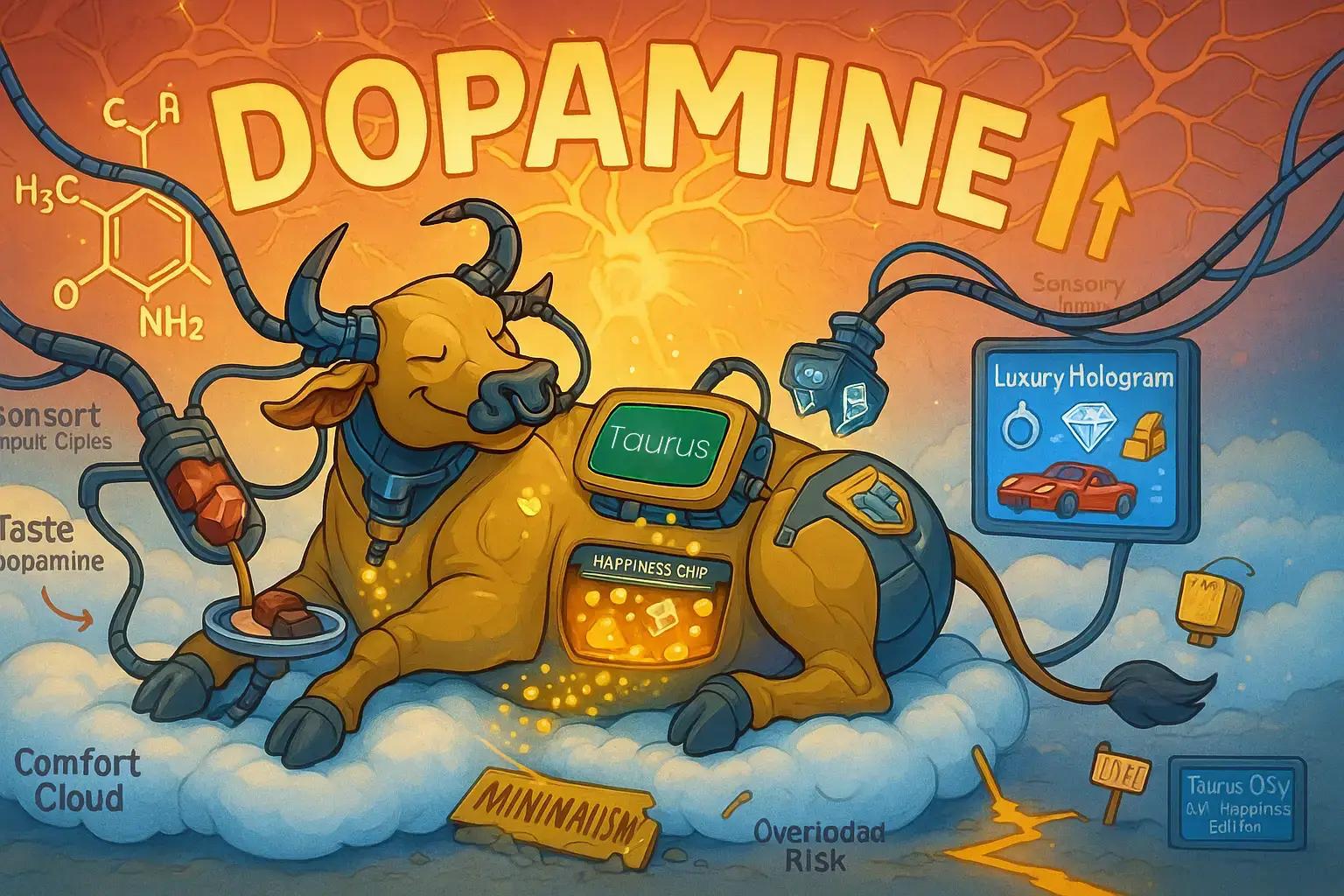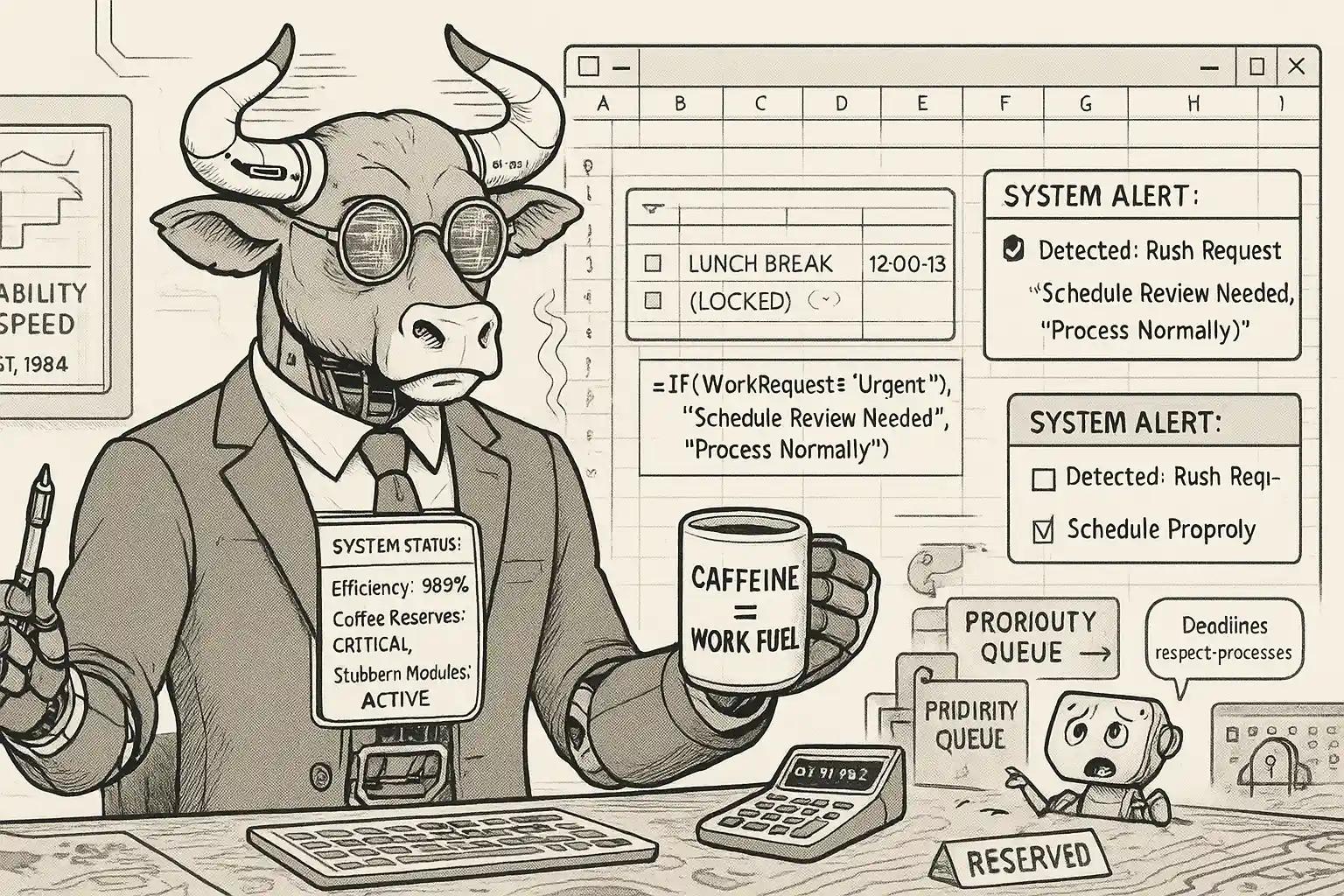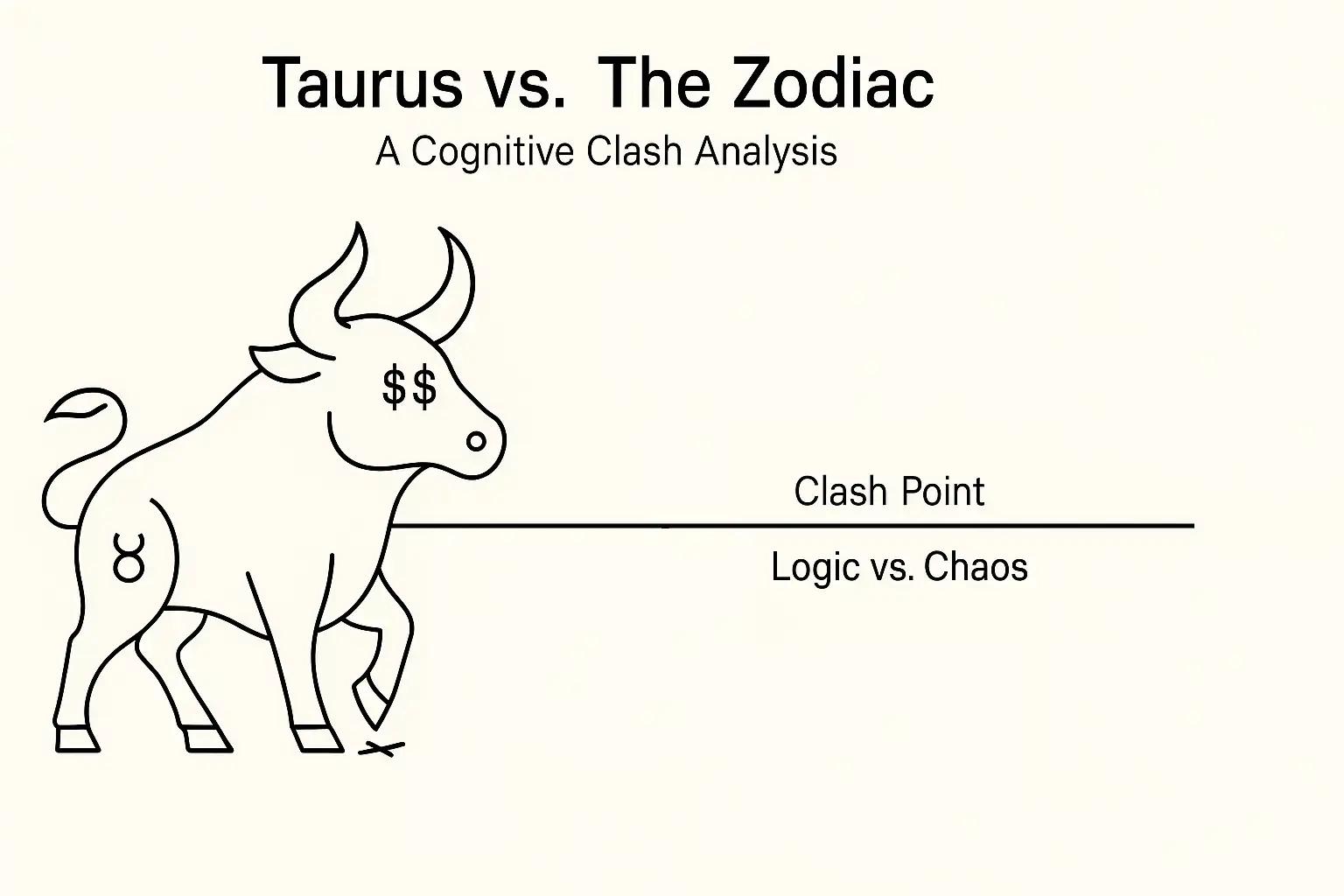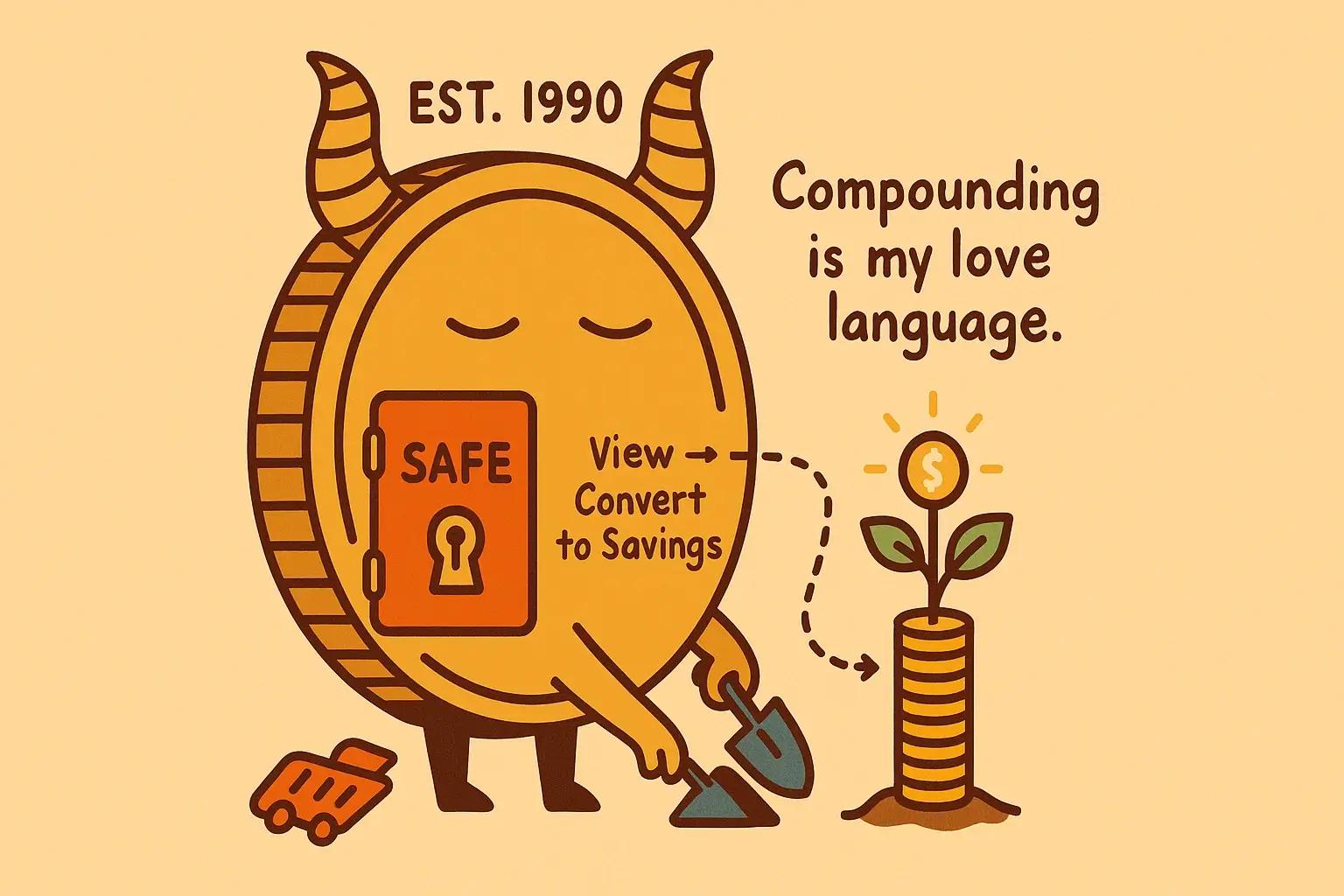Part 1
The Taurus Neural Network: Where Logic Meets Legendary Stubborn Streaks
Picture this: A Taurus brain is like a supercomputer running cost-benefit analysis software 24/7, but with one quirky bug—once it reaches a conclusion, the "change mind" function mysteriously stops working.
When faced with any decision, the Taurus mind follows a predictable sequence: Economics first, emotions second. Research in behavioral economics shows that individuals with strong "loss aversion" tendencies experience what Daniel Kahneman and Amos Tversky's groundbreaking research identified as losses being "psychologically twice as powerful as an equivalent gain" (Kahneman & Tversky, 1979)¹. This explains why your Taurus friend will spend 30 minutes comparing prices for a $5 coffee but won't budge on their "life-changing" discovery that Tony's Pizza is objectively the best in the city—despite overwhelming evidence to the contrary.

The infamous Taurus stubbornness isn't just personality—it may reflect what psychologists call "cognitive rigidity," defined as "the inability to mentally adapt to new demands or information" (Scott, 1962)². This cognitive style can manifest as strong adherence to established patterns and resistance to change.
Part 2
The Taurus Happiness Algorithm: Material Comfort = Maximum Dopamine
If happiness were a science experiment, Taurus individuals would be the control group proving that sensory pleasure directly correlates with life satisfaction. Their brains seem hardwired for what psychologists call "experiential reward processing"—but with a twist.
The Multi-Sensory Response System: Research shows that individuals with what psychologists call "sensory processing sensitivity" (SPS) experience heightened neurological responses to environmental stimuli (Aron & Aron, 1997)³. Studies on SPS reveal that these individuals show increased activity in brain regions associated with sensory processing and emotional regulation. For Taurus, a cashmere sweater or perfectly prepared meal doesn't just feel good—it triggers genuine neurochemical responses that contribute to wellbeing.

The Security Through Possessions Phenomenon: Research on material possessions shows that "possessions provide a sense of security to the owner" and can serve important psychological functions in identity formation and emotional regulation (Belk, 1988)⁴. That innocent "collection" of artisanal candles or vintage records isn't just hoarding—it's psychological comfort-seeking behavior.
Part 3
Romance Through the Taurus Lens: Love on a Slow, Steady Algorithm
Dating a Taurus is like watching a high-definition movie buffer—the loading time is excruciating, but the final product is worth the wait. Their approach to love follows what relationship psychologists call "gradual attachment formation."
The Slow-Burn Attachment Pathway: Research on attachment formation shows that individuals with secure attachment styles follow what psychologists call "gradual escalation" in relationship development (Hazan & Shaver, 1987)⁵. Taurus individuals often exemplify this measured approach, with their brains conducting thorough compatibility assessments before committing emotional resources.

Love Language: Actions Over Words: While specific statistical comparisons vary by study, research consistently shows that different individuals respond to different expressions of love. Some people derive greater satisfaction from practical demonstrations of care (Chapman, 2015)⁶. When your Taurus partner memorizes your coffee order or stocks your favorite snacks, they're demonstrating affection through concrete actions rather than verbal expression.
Part 4
Workplace Taurus: The Human Spreadsheet with a Heart
In professional settings, Taurus individuals function like living, breathing risk assessment algorithms. Their brains seem equipped with built-in project management software that runs continuous evaluations.
The Effort-Reward Balance Seekers: Research on workplace psychology shows that employees' perception of effort-reward imbalance significantly impacts job satisfaction and well-being. Studies demonstrate that "effort-reward imbalance directly negatively predicted job satisfaction" in various workplace settings (Ge, He, Liu & et al., 2021)⁷. That Taurus coworker calculating the ROI of overtime isn't being calculating—they're practicing evidence-based career management.

Process-Oriented Thinking: Organizational psychology research identifies "process orientation" as a cognitive style that thrives on structure and predictability. Their frustration with workplace chaos reflects a genuine psychological need for systematic approaches to tasks and goals.
Part 5
The Taurus Paradox: Zen Master Meets Internal Critic
Beneath that composed exterior lies a brain running commentary that would make stand-up comedians jealous. This contradiction illustrates what psychologists call "emotional regulation masking."
The Observer Phenomenon: While appearing detached, highly observant individuals often process significantly more environmental information than average. This enhanced awareness can lead to rich internal commentary about social situations while maintaining external composure.

Hidden Creative Potential: Research on creativity shows that individuals with strong attention to detail and patience often possess latent artistic abilities. Many personality types that appear methodical on the surface demonstrate unexpected creative talents when given appropriate outlets (Csikszentmihalyi, 1996)⁸.
Part 6
Taurus vs. The Zodiac: A Cognitive Clash Analysis
When different thinking patterns collide, the results offer insights into cognitive compatibility and conflict.
Stability vs. Novelty-Seeking: Research on personality compatibility shows that relationships between stability-oriented and novelty-seeking individuals present unique challenges and opportunities (Nguyen, Nguyen & Le, 2020)⁹. Different cognitive styles activate different decision-making processes, requiring additional communication and understanding.

Compatible Cognitive Patterns: Individuals with similar approaches to organization, responsibility, and long-term thinking often report higher compatibility in relationships and work settings.
Part 7
The Science Behind the "Taurus Savings Account Brain"
What if Taurus mental patterns could be explained through psychological research? Here's our analysis based on established findings:
Enhanced Risk Awareness: Research shows that some individuals have heightened sensitivity to potential threats and risks (Shankman, Nelson, Sarapas & et al., 2013)¹⁰. These individuals excel at identifying problems before they occur—a trait that manifests as careful planning and resource conservation.

Concrete Reward Preferences: Studies on motivation show that some individuals respond more strongly to tangible, measurable outcomes than to abstract rewards (Indeed Editorial Team. n.d.)¹¹. This preference for concrete benefits over intangible praise reflects different reward-processing systems in the brain.
Pattern Persistence: Research on cognitive habits shows that individuals develop preferences for familiar routines and thought patterns (Ersche, Lim, Ward & et al., 2017)¹². Once established, these mental pathways become efficient and comfortable, leading to resistance when change is required.
Part 8
The Bottom Line: Taurus Brains Are Brilliantly Built
The Taurus mind represents a fascinating study in psychological consistency: a brain optimized for stability, security, and sustained satisfaction. While they might seem predictable, they're actually demonstrating well-documented psychological patterns designed for long-term success and deep contentment.

So the next time your Taurus friend insists on their "obviously superior" restaurant choice or takes forever to warm up to new ideas, remember—you're witnessing psychological strategies that prioritize careful decision-making and lasting satisfaction over impulsive choices.
Question for the comments: Taurus readers, how many of these patterns do you recognize in your own thinking? Non-Taurus folks, have you witnessed these traits in action?
Part 9
References
- Kahneman, D., & Tversky, A. (1979). Prospect theory: An analysis of decision under risk. Econometrica, 47(2), 263-291.
- Scott, W. A. (1962). Cognitive complexity and cognitive flexibility. Sociometry, 25(4), 405-414.
- DOI: 10.2307/2785779
- Aron, E. N., & Aron, A. (1997). Sensory-processing sensitivity and its relation to introversion and emotionality. Journal of Personality and Social Psychology, 73(2), 345-368.
- Belk, R. W. (1988). Possessions and the extended self. Journal of Consumer Research, 15(2), 139-168.
- DOI: 10.1086/209154
- Hazan, C., & Shaver, P. (1987). Romantic love conceptualized as an attachment process. Journal of Personality and Social Psychology, 52(3), 511-524.
- Chapman, G. (2015). The 5 Love Languages: The Secret to Love that Lasts. Northfield Publishing.
- Ge, J., He, J., Liu, Y. et al. (2021). Effects of effort-reward imbalance, job satisfaction, and work engagement on self-rated health among healthcare workers. BMC Public Health, 21(1), 1-12.
- Csikszentmihalyi, M. (1996). Creativity: Flow and the Psychology of Discovery and Invention. Harper Collins.
- ISBN-13:
978-0060928209 - Amazon: https://www.amazon.com/dp/0060928204
- Google Books: https://books.google.com/books/about/Creativity.html?id=6w0V2_xM1AsC
- ISBN-13:
- Nguyen, Q., Nguyen, H., & Le, T. (2020). Relationships among novelty seeking, satisfaction, return intention, and willingness to recommend of foreign tourists in Vietnam. Management Science Letters, 10, 2249–2258.
- Shankman, S. A., Nelson, B. D., Sarapas, C., Robison-Andrew, E. J., Campbell, M. L., Altman, S. E., ... & Gorka, S. M. (2013). A psychophysiological investigation of threat and reward sensitivity in individuals with panic disorder and/or major depressive disorder. Journal of Abnormal Psychology, 122(2), 322–338.
- DOI: 10.1037/a0030747
- PMID: 23148783
- PMCID: PMC3694994
- Indeed Editorial Team. (n.d.). Example of extrinsic motivation. Indeed Career Guide.
- Ersche, K. D., Lim, T. V., Ward, L. H. E., Robbins, T. W., & Stochl, J. (2017). Creature of Habit: A self-report measure of habitual routines and automatic tendencies in everyday life. Personality and Individual Differences, 116, 73–85.
- DOI: 10.1016/j.paid.2017.04.024
- PMID: 28974825
- PMCID: PMC5473478
